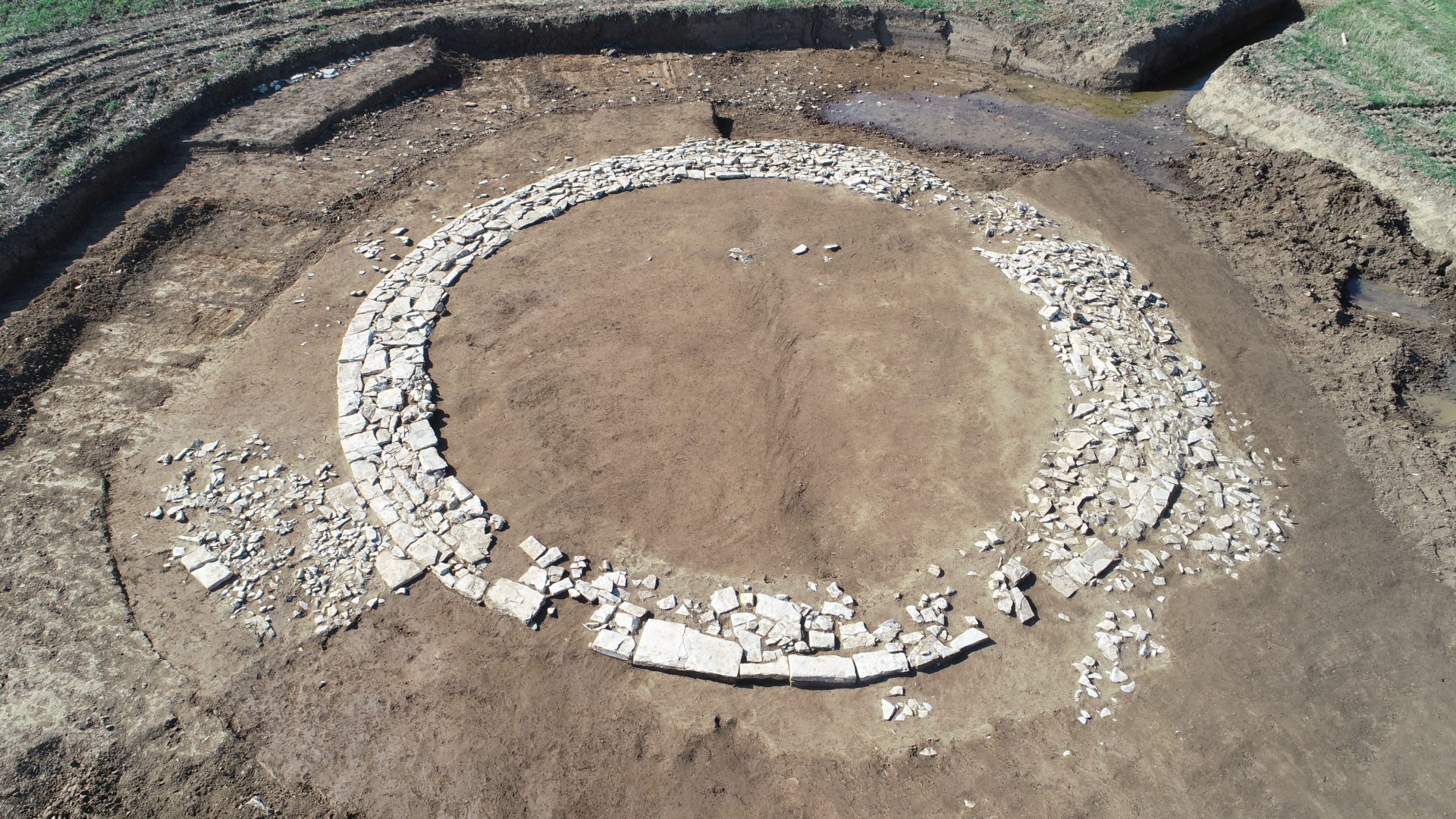“Science is never settled” has become a go-to slogan for populists seeking to legitimise politically convenient but fringe scientific positions. In 2020, MAGA Republican Representative Nancy Mace was asked whether she agreed that climate change is the result of humanmade greenhouse emissions. She responded: “My opponent has said that the science is settled on this. Well, the science is never settled. Scientists will tell you that.”
In February, Senator Roger Marshall argued more money should be spent on investigating widely debunked links between autism and vaccines, saying “I’m a physician. Science is never settled. That’s what makes us scientists.”
The phrase has also crossed the Atlantic. When asked if President Donald Trump was right to share widely debunked claims about a link between Tylenol use in pregnancy and autism, U.K. Reform party leader Nigel Farage replied, “I have no idea.” When pressed on whether he would “side with medical experts who say it’s dangerous nonsense,” he responded, “When it comes to science, I don’t side with anybody… because science is never settled.”
Kit Yates is a professor of mathematical biology and public engagement at the University of Bath in the U.K.
Myth of overturned consensus
A favorite trope of climate denialists is that scientists in the 1970s predicted “global cooling” — an imminent ice age. It’s a smart argument, because if you can suggest that the exact opposite of global warming was once the prevailing view, surely you throw the current consensus on climate science into doubt?
Despite media attention and much discussion of the idea, global cooling was never a consensus scientific position. Reviews of the literature at the time show that even 50 years ago, global warming dominated scientific thinking about the Earth’s short-term climate future. That climate change is the result of greenhouse gas emissions is now very much the consensus scientific position.
There are, however, examples in science where consensus positions have been modified or updated. Gravity is a classic case. Galileo established that acceleration due to gravity is the same for all objects near Earth’s surface. But it wasn’t until Newton that we had a universal theory of gravitation.
Newton’s theory unified the behavior of objects falling on earth with the motions of planets. For years, every measurement seemed to confirm it, and the theory became known as a “law” that nature was thought to obey without exception.
But as experiments expanded and instruments improved, the edges of Newton’s “law” began to fray. When dealing with strong gravitational fields like those near a black hole, or when calculating to high precision or over short astronomical distances, Newton’s law wasn’t sufficient. In the 20th century, Einstein’s general relativity filled many gaps — resolving a range of seeming astronomical anomalies and describing how light bends near a black hole.
Yet even the relativistic interpretation of gravity is not perfect. We know, for example, that it must break down inside a black hole.
First Galileo’s and then Newton’s theories were superseded, and we know Einstein’s isn’t correct in every situation. Does that mean these earlier theories are useless and not examples of settled science? Definitely not.
In contexts where these theories have been rigorously tested and shown to give the correct answers (to a given degree of precision), they remain valid. They aren’t wrong — just special cases of the more general theories, valid within a given domain of legitimacy in which they were originally postulated and tested.
In the same way, whatever supersedes Einstein’s theory will have to include it as a special case. The example of gravity shows that scientific knowledge can evolve yet still be considered settled within its domain of legitimacy. We can point to other consensuses, like evolution or germ theory, as settled science that has been expanded and generalized over time.
Scientific ‘facts’
There are also questions that most would call definitively settled. That Earth is round, not flat, is perhaps the most obvious. But whether we choose to call this a “fact” or not depends on how we define the word. If we demand 100% certainty, science can’t provide it. If you want certainty, you need to look to mathematics, where knowledge is built through deduction from axioms (a fundamental set of premises), independent of the world.
Science, in contrast, built on evidence and induction, can only ever offer increasing confidence. A key premise of the scientific method is openness to new evidence. If you consider yourself 100% certain, then no new evidence, however convincing, can change your mind. That is not good science.
However, if you accept that science provides evidence for hypotheses, it can offer what we might call indisputable evidence — so robust that disputing it isn’t a tenable position. Overturning the not-flat worldview would require such a massive reconsideration of what we understand about reality as to make it practically impossible.
So, “settled science” does not mean we know something with absolute certainty, but that the weight of evidence is heavily in favor of this interpretation. Perhaps more importantly, if someone wants to change the currently held conception, the burden of proof is on them.
All scientific knowledge comes with uncertainty. That is the hallmark of good science. But uncertainty doesn’t mean we cannot confidently assert that entropy always increases (the second law of thermodynamics) or that Earth orbits the sun.
Science embraces uncertainty and is open to revision when new information appears, but that does not mean we shouldn’t take a position when the evidence stacks up on one side of the balance. Issues that have been rigorously tested can still be considered settled.
Not being 100% certain isn’t the same as being 50-50. Admitting doubt isn’t the same as both-siding a one-sided issue. The fact that scientists acknowledge uncertainty isn’t a reason for championing false balance. But these are the fallacious positions populists are taking when they say “I have no idea” or “I don’t side with anybody” on scientific questions.
So when you hear a politician dismissing scientific consensus with phrases like “science is never settled,” don’t confuse what they are saying with an argument for intellectual humility. They are bluntly attempting to undermine inconvenient truths. Truths which can evolve and grow more nuanced over time, for sure — but whose foundations are strong enough to remain robust in their domain of legitimacy, even as the structure grows around them.
Opinion on Live Science gives you insight on the most important issues in science that affect you and the world around you today, written by experts and leading scientists in their field.













